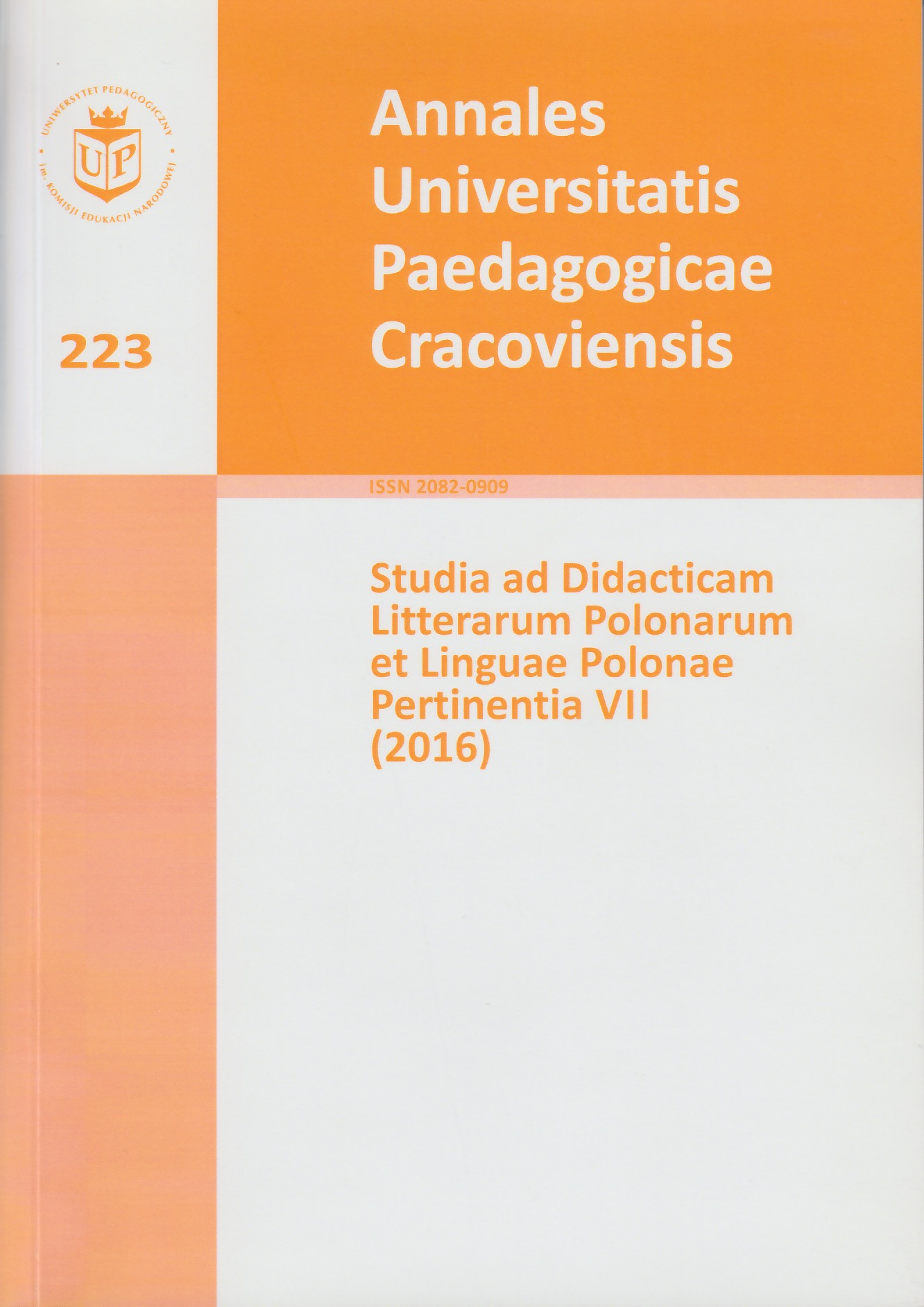Abstrakt
The aim of the paper is to reflect upon the results of the educational project among children
from Vietnamese families living in Poland, Kraków. By doing so, I intend to propose
a framework for further activities that could support children’s development in linguistic and
cultural sense meanwhile respecting their rights as ethnic minorities and representatives of
Vietnamese families successfully accommodated in Poland. Also, I aim to contribute to the
debates on what it means to be growing up as an ethnic minority in the 21st
the amount of material and specificity of Polish as a Slavonic language in the case of pupils
with Vietnamese background make the education a particularly ambitious task which results
are constantly challenged by the school realms and the overall progress of the child. Two case
studies reflected upon in this presentation are analyzed from the perspective of ethnographic
participant observation. Children and tutors immersing in the context of learning and teaching
generate multiple creative ideas, which help in mutual understanding and knowledge
transmission. Hence, the identities are constructed on the basis of and connected with culture,
customs and traditions of Poland. It supports child’s self-understanding in the Polish context,
meanwhile it allows for recognizing own identity enriched by the cross-cultural exchange and
bilingual experience.
century Poland.
Education among ethnic minorities is a challenging task, which means constant negotiation
between the knowledge to be thought as part of a school program and own experience,
skills and knowledge coming from the children’s background. To meet formal expectations
established by Polish school, tutors need to constantly revise teaching methods and search
for new activities. Close cooperation with school and the head teacher is necessary, however
Bibliografia
Biernath M., Analiza funkcjonowania i integracji migrantów poza województwem mazowieckim:
##plugins.generic.googleScholarLinks.settings.viewInGS##
przypadek województwa małopolskiego i Krakowa, [in:] Między jednością a wielością.
##plugins.generic.googleScholarLinks.settings.viewInGS##
Integracja odmiennych grup i kategorii imigrantów w Polsce, ed. A. Grzymała-Kozłowska,
##plugins.generic.googleScholarLinks.settings.viewInGS##
Warszawa 2008, p. 241–260.
##plugins.generic.googleScholarLinks.settings.viewInGS##
Chin N.B., Wigglesworth G., Bilingualism. An advanced resource book, London – New York 2007.
##plugins.generic.googleScholarLinks.settings.viewInGS##
Gadowska A. i in., Charakterystyka społeczności imigranckich z Ukrainy, Armenii, Wietnamu
##plugins.generic.googleScholarLinks.settings.viewInGS##
i krajów MENA, zamieszkujących województwo małopolskie oraz badane społeczności
##plugins.generic.googleScholarLinks.settings.viewInGS##
w świetle analizy dokumentów, [in:] Imigranci w Małopolsce. Między integracją, asymilacją,
##plugins.generic.googleScholarLinks.settings.viewInGS##
separacją, marginalizacją, ed. E. Pindel, Kraków 2014, p. 49–115.
##plugins.generic.googleScholarLinks.settings.viewInGS##
Grabowski A., Jawi się w naszym obcowaniu. Almanach XXV Międzynarodowej Galicyjskiej Jesieni
##plugins.generic.googleScholarLinks.settings.viewInGS##
Literackiej, Kąśna Dolna 2015.
##plugins.generic.googleScholarLinks.settings.viewInGS##
Grosjean F., Studying Bilinguals. Methodological and conceptual issues, [in:] Bilingualism and
##plugins.generic.googleScholarLinks.settings.viewInGS##
Multilingualism. Critical Concepts in Linguistics, ed. L. Wei, vol. 2, Abingdon – New York
##plugins.generic.googleScholarLinks.settings.viewInGS##
, p. 1–30.
##plugins.generic.googleScholarLinks.settings.viewInGS##
Halik T., Migrancka społeczność Wietnamczyków w Polsce w świetle polityki państwa i ocen
##plugins.generic.googleScholarLinks.settings.viewInGS##
społecznych, Poznań 2006.
##plugins.generic.googleScholarLinks.settings.viewInGS##
Halik T., Nowicka E., Wietnamczycy w Polsce. Integracja czy izolacja?, Warszawa 2002.
##plugins.generic.googleScholarLinks.settings.viewInGS##
Holmes R., Fieldwork with children, Thousand Oaks – London 1998.
##plugins.generic.googleScholarLinks.settings.viewInGS##
Innis H., Bilingualism and Biculturalism. An abridged version of the Royal Commission Report,
##plugins.generic.googleScholarLinks.settings.viewInGS##
Toronto 1973.
##plugins.generic.googleScholarLinks.settings.viewInGS##
Mackey W., The description of bilingualism, [in:] The Bilingualism Reader, ed. L. Wei, London
##plugins.generic.googleScholarLinks.settings.viewInGS##
, p. 26–54.
##plugins.generic.googleScholarLinks.settings.viewInGS##
Lorek M., Zatorska M., Nasza Szkoła. Podręcznik do Szkoły Podstawowej Klasa 2. Część 1a,
##plugins.generic.googleScholarLinks.settings.viewInGS##
Warszawa 2015.
##plugins.generic.googleScholarLinks.settings.viewInGS##
Ludwa A., Nasza Szkoła. Matematyka. Podręcznik do Szkoły Podstawowej Klasa 2. Część 1,
##plugins.generic.googleScholarLinks.settings.viewInGS##
Warszawa 2015.
##plugins.generic.googleScholarLinks.settings.viewInGS##
Nowacka-Devillard A., Apetyt na Wietnam – Nem, Piaseczno 2014.
##plugins.generic.googleScholarLinks.settings.viewInGS##
Pavlenko A., The Bilingual Mind and what it tells us about language and thought, Cambridge –
##plugins.generic.googleScholarLinks.settings.viewInGS##
New York 2014.
##plugins.generic.googleScholarLinks.settings.viewInGS##
Rozmowy z przyjaciółmi, [in:] Iskra, Ciężkowice 2012, p. 17–20.
##plugins.generic.googleScholarLinks.settings.viewInGS##
Wei L., Dimensions of bilingualism, [in:] The Bilingualism Reader, ed. L. Wei, London 2000,
##plugins.generic.googleScholarLinks.settings.viewInGS##
p. 3–25.
##plugins.generic.googleScholarLinks.settings.viewInGS##

